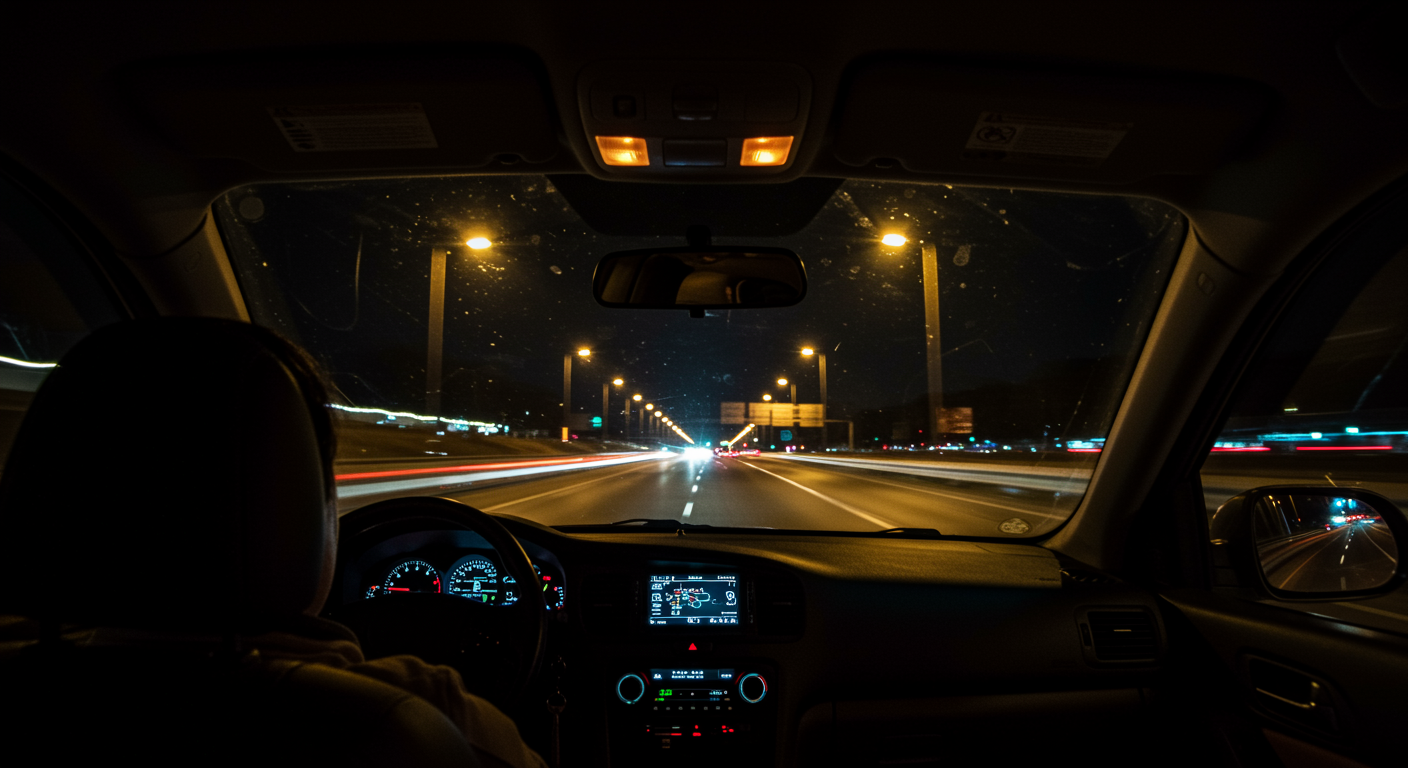Is Being Sleep Deprived Like Being Drunk?
Yes, and the numbers are clear. In this peer reviewed study, after 17 to 19 hours without sleep, people performed on some tasks as poorly as they did at 0.05 percent blood alcohol. With longer wakefulness, impairment matched about 0.10 percent. That is why sleep deprivation vs alcohol is a fair comparison for driving risk and motor performance.
Dr. Kumar’s Take
Most people underestimate how fast fatigue cripples reaction time and judgment. This trial shows that a long day awake can push you into the same danger zone as drinking. If you must drive or operate equipment at night, plan sleep first, use a real break, and avoid the “I feel fine” trap. Your brain may not be fine.
Sleep Deprivation vs Alcohol: What the Research Shows
Thirty nine healthy adults were tested across 28 hours without sleep and also after alcohol at measured blood levels. After 17 to 19 hours awake, performance on some tests was equal to or worse than 0.05 percent blood alcohol. Reaction times slowed as much as 50 percent, and accuracy dropped. With more hours awake, results matched the highest alcohol level tested at about 0.10 percent.
Study Snapshot
- Design: Within subject comparison of sleep loss vs alcohol; performance tested across 28 hours without sleep and after measured alcohol doses
- People: 39 adults from transport and military groups
- Intervention: Total sleep deprivation over one extended wake period
- Comparator: Alcohol up to about 0.10 percent blood alcohol
- Outcomes: Reaction speed, accuracy, and other cognitive motor tests
- Duration: One continuous 28 hour wake episode plus alcohol sessions
Reaction Time and Accuracy After 17-19 Hours Awake
After 17 to 19 hours without sleep, performance on some tests equaled or was worse than at 0.05 percent blood alcohol. Response speeds were up to 50 percent slower and accuracy was significantly poorer. With longer wakefulness, impairment matched about 0.10 percent blood alcohol. The worst performance clustered late evening to early morning, around 10:30 pm to 1:00 am, which aligns with circadian low points.
Why Sleep Loss Hurts Driving and Motor Performance
Staying awake builds sleep pressure and disrupts attention networks. The brain shifts from fast, accurate responses to slower, more variable ones. That is why simple reaction time and sustained attention tasks suffer first, and why drowsy driving risk climbs at night.
Who Faces the Highest Drowsy Driving Risk?
- Night shift workers and early morning drivers
- Medical staff, first responders, and transport operators after long shifts
- Parents, caregivers, and students pulling late nights
- Anyone planning a long drive after a full workday
Safety Limits and Study Caveats
This was a controlled comparison with short term sleep loss. It did not test chronic sleep debt or people with sleep disorders. Even so, the effect size is large and matches real world crash data patterns. Use these numbers as a safety floor, not a challenge.
Work and Caregiving Strategies to Reduce Fatigue Risk
Share your real schedule with your doctor or team. If your work or commute pushes you past 17 hours awake, adjust shift timing, schedule protected naps, and avoid late night driving when possible. Build a cutoff time for travel, plan a ride if you cross that threshold, and get screened for sleep disorders if fatigue is a pattern.
Related Studies and Research
🎧 Listen to Our Sleep Podcast
- Episode 23: How to Sleep Better — The Science and Daily Playbook - Comprehensive guide to sleep optimization, circadian rhythms, and evidence-based strategies for better rest
Related Sleep Research Articles
- Sleep Deficiency Doubles Motor Vehicle Crash Risk in General Population - Large study showing how sleep loss dramatically increases driving accident risk
- Sleep Restriction Impairs Cognitive Function: Meta-Analysis of 147 Studies - Comprehensive review of how sleep loss affects attention, memory, and cognitive processing
- Sleep Deprivation vs Alcohol: Performance Impairment at BAC 0.05% - Additional research comparing sleep deprivation to alcohol impairment levels
FAQs
How many hours awake equals a 0.05% BAC equivalent?
This study points to 17 to 19 hours without sleep as a danger threshold for slowed reactions and errors similar to 0.05 percent blood alcohol.
Does 24 hours awake equal 0.10% BAC?
By the end of extended wakefulness, impairment matched about 0.10 percent blood alcohol on some tests.
Can caffeine undo sleep deprivation for driving?
Caffeine may help for a short period, but it cannot restore normal performance after long wakefulness. A real nap or sleep period is safer.
Is it illegal to drive while sleep deprived?
Many places do not list a specific law for sleep deprivation, but unsafe driving can still lead to legal consequences. The safest choice is to avoid driving when you are at or beyond the 17 to 19 hour window.
Bottom Line
A long day awake can impair you like alcohol. Plan sleep first, avoid late night driving after long shifts, and use real rest instead of quick boosts.


